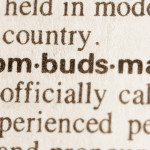Seniors vs Crime

BEEN RIPPED OFF? SCAMMED? NEED TO TALK TO SOMEONE? We may have a solution for you.
We are Seniors vs. Crime, a Special Project of the Florida Attorney General’s Office. Our mission is to assist in resolving cases committed against the elderly.
No case or matter is too large or too small “Don’t feel embarrassed or guilty.”
We are a FREE service and invite you to call or stop in to discuss your problem. All cases are kept strictly confidential.
Our office is located in the Kings Point Professional Building just south of Atlantic on the west side: 15127 Jog Road, Delray Beach, Fl. 33446 Tel: 561-865-1571 Fax: 561-865-1572
We are here to help you 9:00 AM to 1:00 PM Monday through Friday.
We can alert and educate you about Consumer Fraud, Con Games, Scams and other criminal acts that target seniors. Our Speakers Bureau will be happy to send a representative to a group meeting to discuss crime prevention. Please call to arrange a time and date.
HELPFUL HINTS
1. If you are a victim of Identity Theft:
A. File a police report. Be sure to keep a copy
B. Report the ID Theft to the 3 major credit agencies
Equifax 800-525-6285
Experian 888-397-3742
TransUnion 800-680-7289
C. Report the ID Theft to you local Postmaster
D. Be prepared to cancel all credit cards
E. Obtain a copy of the 3 agency credit reports to review and correct
F. Call the FTC’s ID Theft Hotline at 877-438-4338 or file for an FTC Identity Theft Affidavit at www.ftc.gov/complaint
2. To obtain a free copy of your credit report go to www.annualcreditreport.com or call 877-322-8228
3. To place a FRAUD ALERT on your credit agency reports, call any one of the 3 agencies noted above. By putting a Fraud Alert on your account, each agency will also provide you with access to a free copy of your credit report. The Fraud Alert lasts for 90 days (7 years if a fraud victim) and can be renewed.
4. Check privacy options at www.ftc.gov/privacy/protect.htm
5. To Opt Out of receiving offers for pre-approved credit cards, go to www.optoutprescreen.com or call 888- 5OPTOUT (888-567-8688).
6. To check an investment broker’s status go to www.finra.org/brokercheck or 800-289-9999
7. To check a broker’s license or if an investment is registered go to SaveAndInvest.org or call 888-295- 7422
8. To visit the website of the Florida Department of Financial Regulation go to www.FLOFR.com
9. To test how well you protect yourself take a quiz about yourself at www.idsafetv.net/guiz,oho
10. www.freshfromflorida.com has an A to Z Resource Guide on hundreds of topics. MyFloridaCFO.com/OnGuard provides educational help about financial and insurance issues








